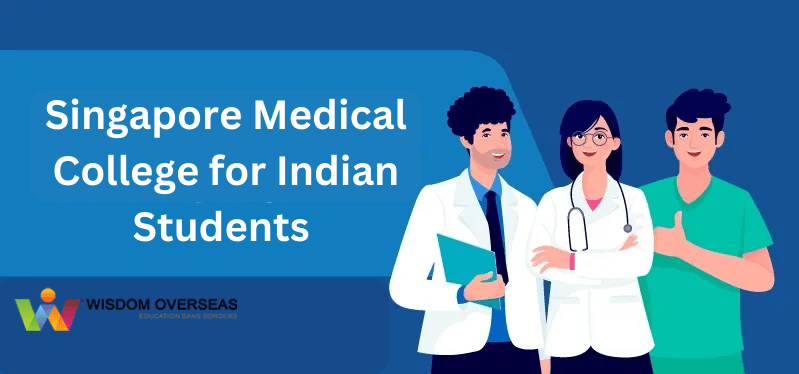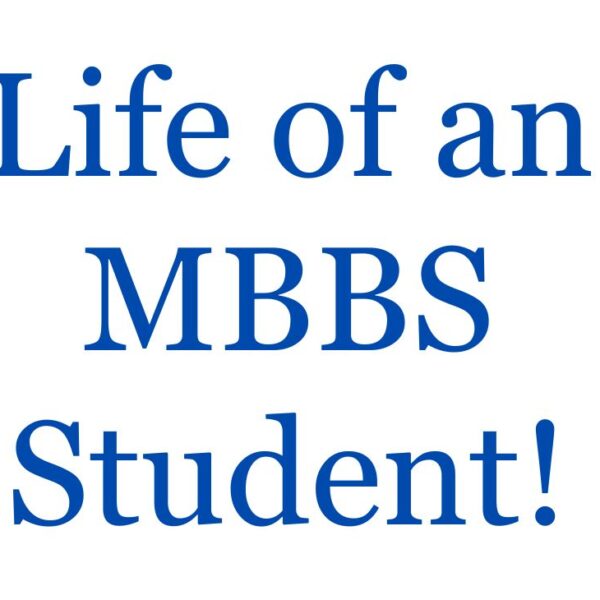
Singapore Medical College for Indian Students
The MBBS program in Singapore is offered by only 2 universities. The National University of Singapore and Nanyang Technological University are the top universities in Singapore. Both of these universities are ranked in the top 5 universities in Asia by QS Rankings 2023. While in Medicine, the NUS ranked 21 and NTU ranked 93 worldwide.
Both the Singapore medical universities offer quality education, top-notch infrastructure facilities, the best faculty, and guides in the best clinical training.
The duration of the course is 5 years in both universities. While coming to the fee structure for MBBS in Singapore, ranges from 66,000 – 75,550 SGD (39.26 lakhs – 44.94 lakhs INR) per year. The tuition fee is relatively less when compared with tuition fees in the USA and UK.
Students are also provided with merit scholarships and financial aid during their studies. The scholarship covers tuition fees and living expenses.
Also, there is a video score for aspirants upon completing the MBBS course. The average salary for doctors will be 110,000 SGD (65.43 lakhs INR) per annum [approximately].
MBBS in Singapore: Highlights
| Program | MBBS or Bachelor of Medicine and Bachelor of Surgery |
| Duration | 5 years |
| Eligibility Requirement | 75% average in 10+2 Science stream with Physics, Biology, Chemistry and English being major subjects |
| Test Accepted | NEET, IELTS, TOEFL, and BMAT |
| Tuition Fees | 66,000 – 75,550 SGD (39.26 lakhs – 44.94 lakhs INR) per annum (approximately) |
| Average Salary | 110,000 SGD (65.43 lakhs INR) per annum (approximately) |
MBBS Universities in Singapore Along with Fee Structure
| University | National University of Singapore | Nanyang Technological University |
| Program | MBBS | BMAT |
| Admission Deadlines | Mid-March 2023 | Mid-March, 2023 |
| Total Program Fees | 330,000 SGD | 377,750 SGD |
Aspirants applying for MBBS in Singapore can check the fee structure and other details from the university website of respective universities.
Why Study MBBS in Singapore?
- Singapore is high in employment. The unemployment rate is only 2.2% and the employment rate is approximately 88% or above in Singapore.
- The Ministry of Education in Singapore is providing scholarships for international students to encourage them to continue their academics without any disturbance. By availing of the scholarship, students can easily repay their loans.
- Approximately 82% of applicants are granted successful Permanent Residency in Singapore, making it a favorable destination for immigration.
According to a global survey published in 2018, Singapore consistently ranks highest in the law and order index for five years in a row.
Ninety-four (94%) percent of individuals in the US say they feel comfortable traveling at night, which is higher than the global average. Additionally, compared to the global Smart City Achievement Index, it was named the safest city in 2017.
According to the Political and Economic Hazard Consultancy, Singapore’s medical centers are well regarded, ranking third globally.
- Medical practitioners in Singapore are held in high esteem, and they have the opportunity to work in both private and public healthcare sectors.
MBBS in Singapore: Admission Process
Students seeking MBBS Admission in Singapore can apply directly on the university’s official portal after completing class 12 with major subjects as Bi.P.C. Students must have scored at least 75% in their class 12/Plus 2.
Where to Apply:
Visit the university’s official portal to apply for MBBS admission.
Eligibility Requirements:
| Admission Requirements | National University of Singapore | Nanyang Technological University |
| Transcripts | Class 12/Diploma transcript must include passing score of all the 5 subjects | Transcript of class 12 or document of Non-academic achievements |
| GPA or Average | 3.2 GPA or 75% in 10+2 | 3.0 GPA or 75% in 10+2 |
| Test Scores | BMAT score of 4.6 | BMAT score of 4.6 |
| Language Proficiency Score | TOEFL-iBT: 90 IELTS: 6.0 | TOEFL-iBT: 90 – 100 IELTS: 6.0 |
Documents required for MBBS Admission in Singapore
To apply for MBBS admission in Singapore, you will typically need to submit the following documents:
Personal Statement:
A personal statement of approximately 500 words, outlining your background, motivation, and reasons for pursuing MBBS in Singapore. This statement should highlight your passion for medicine, relevant experiences, and career goals.
Letters of References:
Two letters of reference from persons who can speak about your academic abilities, character, and potential as a medical student. These references should ideally come from teachers, professors, or professionals in the medical field who are familiar with your work and qualifications.
Alternatively, if the requirements call for a 300-word private declaration, one letter of recommendation, a claim made in a thief report, and a criminal record declaration, you would need to provide the following:
Personal Statement:
A concise personal statement, approximately 300 words in length, focusing on your aspirations, experiences, and dedication to studying medicine in Singapore.
Letter of Recommendation:
A single letter of recommendation from a reliable source, such as a teacher, professor, or mentor, who can attest to your academic capabilities and suitability for MBBS admission.
Criminal Record Declaration:
A declaration stating your criminal record history, if applicable. It’s important, to be honest and transparent in this declaration.
Please note that specific requirements may vary among universities or medical schools in Singapore. It is advisable to refer to the official website of the institution you are applying to for the most accurate and up-to-date information regarding the required documents for MBBS admission.
Visa Requirements for International Students
University learners must register for a course by passing in Singapore after acquiring an email of recommendation from the Institute of Higher Learning (IHL). The application process is done through SOLAR, which involves filling out e-Form 16.
During registration, applicants need to pay a fee of 21.74 SGD (1,293 INR), and an additional fee of 43.48 SGD (2,586 INR) (approximately) is required upon successful acceptance.
To apply for a student pass, students must gather the following documents:
- University’s Certificate of Proposal
- A Notification from the institution for which you applied for a Valid travel document
- Four passport-size photographs
- Information on parents (if necessary)
- Personal Email ID
- Permanent address and contact information in Singapore
- gathering of financial, employment, academic, and residential statistics
- Students must post three items when they arrive: their passport, the original letter of In-Principle Approval (IPA), and the Disembarkation/Embarkation (D/E) card.
Please note that the information provided is based on the knowledge cutoff of September 2023, and there might be updates or changes in the application process. It’s always advisable to refer to the official guidelines or contact the respective authorities for the most up-to-date information.
MBBS in Singapore: Cost of Studying
College students looking for MBBS admission in Singapore can look up information on the cost of living, tuition, and pre-arrival fees.
Pre-arrival Cost
| Type of Expense | Cost ( SGD) | Cost (INR) |
| Application Fees | 10 – 30 | 594 – 1,784 |
| IELTS | 365 | 21,713 |
| TOEFL | 355 | 21,118 |
| Visa Fee | 65 | 3,866 |
Note: The pre-arrival cost might be subject to change. Students aspiring to get admission in Singapore can check the fee while applying for the examinations.
Tuition Fees
The MBBS program at the National University of Singapore has an annual tuition fee of 66,000 SGD (39.26 lakhs INR).
At Nanyang Technological University, the program is slightly more expensive, with a tuition fee of 75,550 SGD (44.94 lakhs INR) per year.
Note: The fee structure mentioned above might not be accurate as the information is collected from various sources. Check the University’s official website to check the accurate information about MBBS Tuition fees in Singapore.
Cost of Living in Singapore
In terms of cost of living, Singapore is known to be according to the Economics Research Unit’s global cost of living report, the most expensive city in the entire world. Learners can choose how to spend their additional money, though.
Instead of a fully-owned furnished apartment, they might choose an on-campus residence or a shared condominium. Additionally, choosing to use public transit rather than confidently driving one’s vehicle can also help reduce expenses.
MBBS in Singapore: Course Curriculum
Singapore’s MBBS curriculum is divided into five stages, each of which focuses on a different area of science instruction. The goals of Phases 1 and 2 are to introduce students to current issues in medicine and the anatomy of humans.
These levels provide students with a solid base of knowledge by covering important criteria and requirements. In Phases 3, 4, and 5, the curriculum delves deeper into the field of medicine and surgery, providing a more comprehensive understanding of the subject matter.
These phases focus on the specifics of various medical specialties, equipping students with in-depth knowledge and skills necessary for clinical practice. During the latter three phases, students are also allowed to choose electives.
This allows them to explore specific areas of interest within the field of medicine and gain specialized knowledge in those areas. Overall, the MBBS curriculum in Singapore progresses from building foundational knowledge to providing specialized education in medicine and surgery, ensuring that students receive a comprehensive and well-rounded medical education.
Several of the manuals instructed in various phases include:
- Human biological principles: the cellular musculoskeletal system
- Reproductive and endocrine systems
- 90% of cancers’ Systemic pharmacology and pharmacology’s biological roots
- Neuroscience & Musculoskeletal
- Medicine
- Forensic Medicine
- Principles of Pharmacology and Systemic Pharmacology
- Orthopedic surgery procedure
- Dermatology
- Clinical Skills Foundation Programme
- Obstetrics and Gynecology
- Acute Care comprising Anesthesia and Emergency Medicine
- Immunology
MBBS in Singapore: Scholarships
According to the Observatory on Borderless Higher Education, out of the three thousand of Singapore’s 70,000 international learners are through India. Furthermore, leading banks are willing to lend to 52% of Singaporean international students.
Here are several gifts and financial aid that are provided to international students in Singapore:
MOE Tuition Grant Scheme:
- After getting a letter of invitation from their host college, foreign learners are eligible to borrow a certain quantity.
- No specific loan amount is specified.
- Upon finishing their education, those in debt must live in Singapore and accept a three-year commitment to repay the grant money.
- Application deadlines vary depending on the host college.
- For example, for the National University of Singapore (NUS), special term 1 is between 25th-29th May 2020, and special term 2 is from 6th-10th July 2020.
ASEAN Undergraduate Scholarship:
- The last training rate following the sanctioning of the MOE supply is covered by this scholarship, which is aimed at undergraduates who are studying in Singapore.
- It offers a living allowance of approximately 4,206.42 SGD per year.
- Major institutions accepting this grant include NUS, NTU, and SMU.
- The scholarship deadline is on 14th-15th October.
Dr. Goh Keng Swee Scholarship:
- The Dr. GKS Scholarship is available to students from various countries.
- For faculties like NUS, NTU, SMU, or SUTD, it is significantly relevant.
- Candidates must exhibit leadership qualities and have a stellar record in extracurricular activities.
- The scholarship pays for expenses such as tuition, airfare, a 6,500 SGD yearly stipend, an accommodation allowance mostly based on the selected university, and an additional 200 SGD benefits after entry.
- The 15th of March is the accepted deadline for this financial aid.
The Undergraduate Scholarships at NUS and the Smart Scholarship program are only two examples of the several scholarships offered by host universities. These scholarships typically have strict eligibility requirements that tend to depend solely on benefits.
Candidates must typically be in the top 5% of their class, have a GPA of 3.8 or above, an ACT score of 31, or a SAT score of 1430. Please note that the information provided is based on the available data up until September, and it is recommended to refer to the official websites of the respective scholarships or contact the host colleges for the most up-to-date information.





